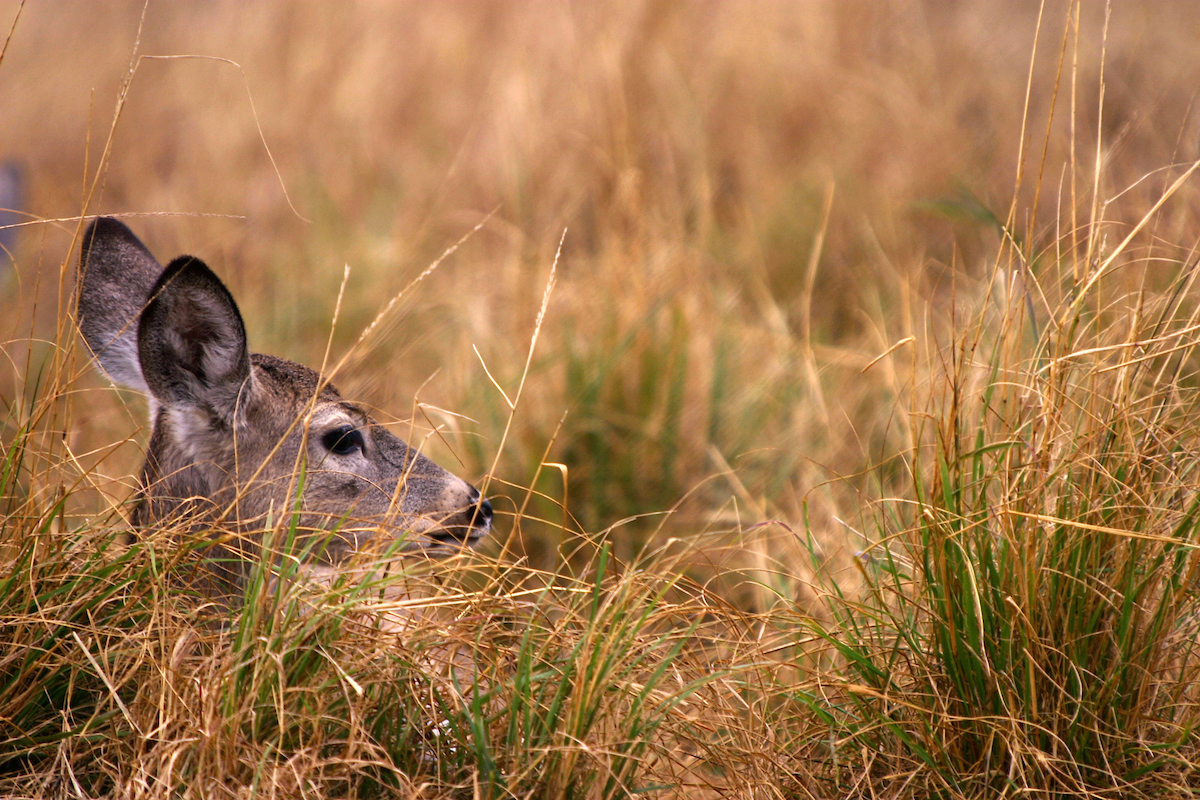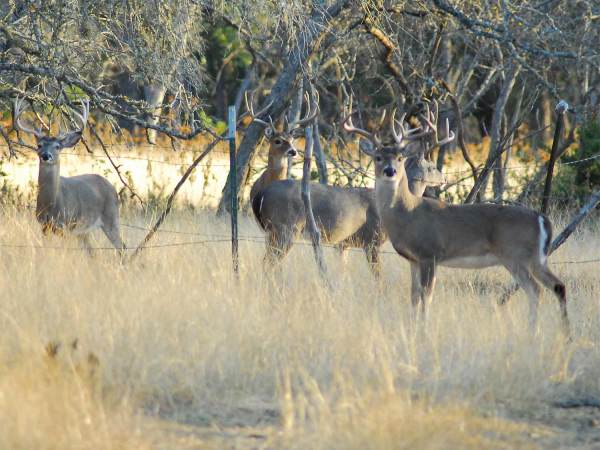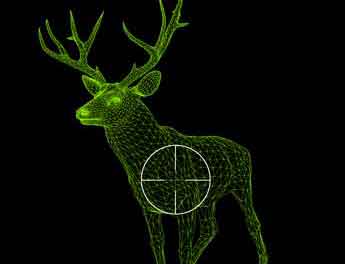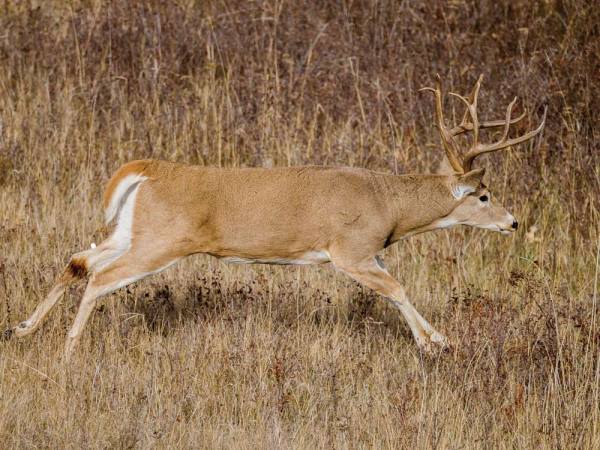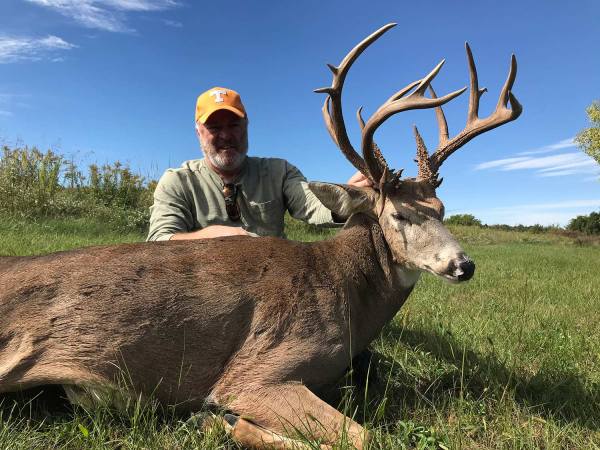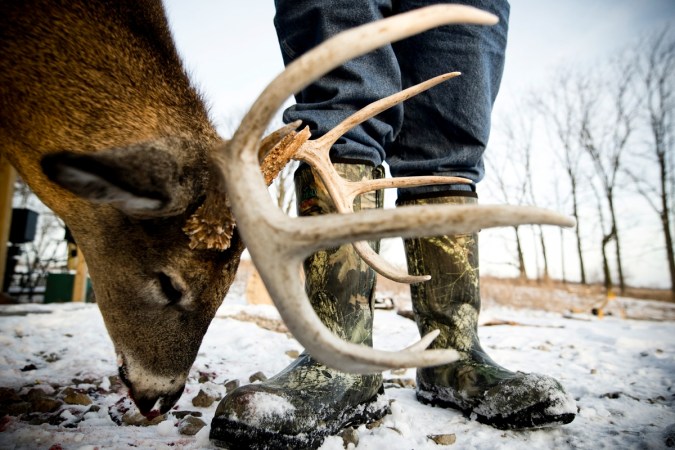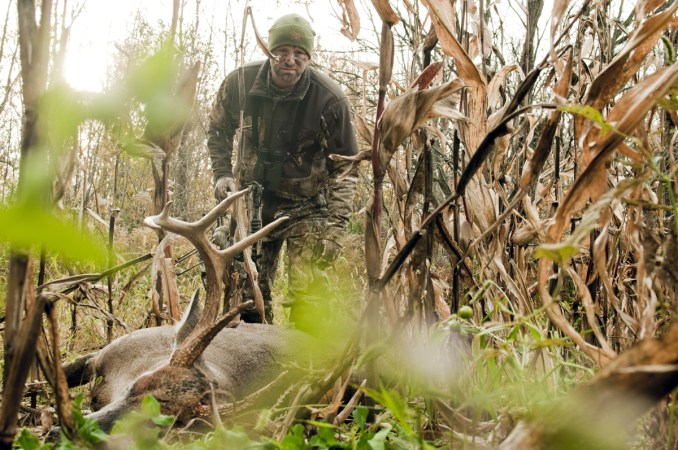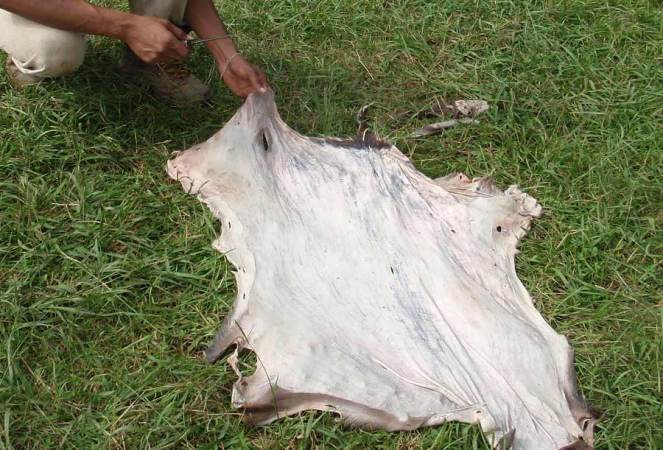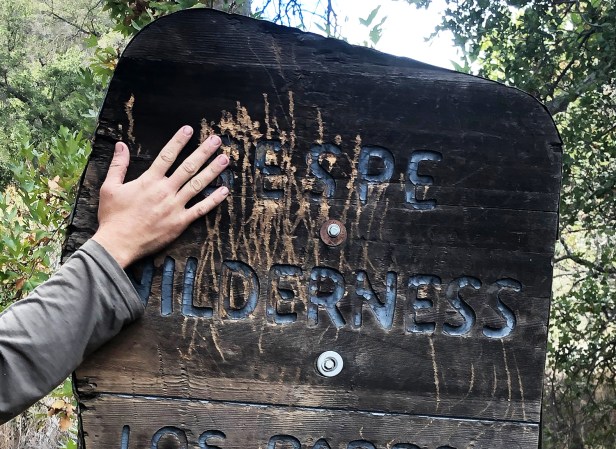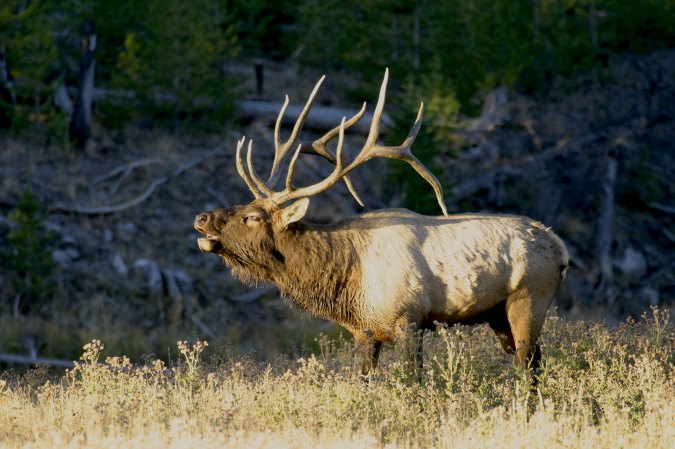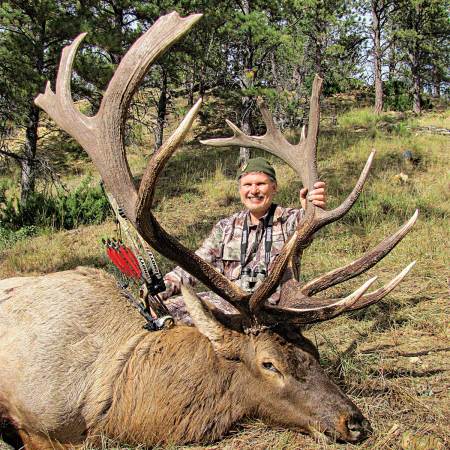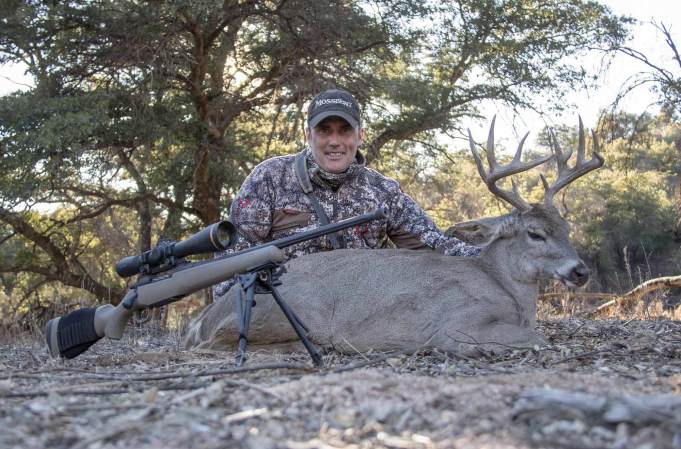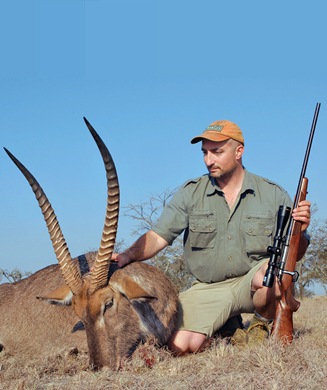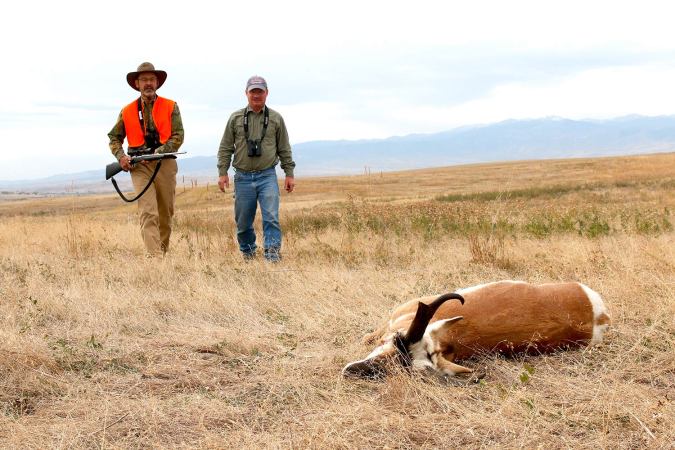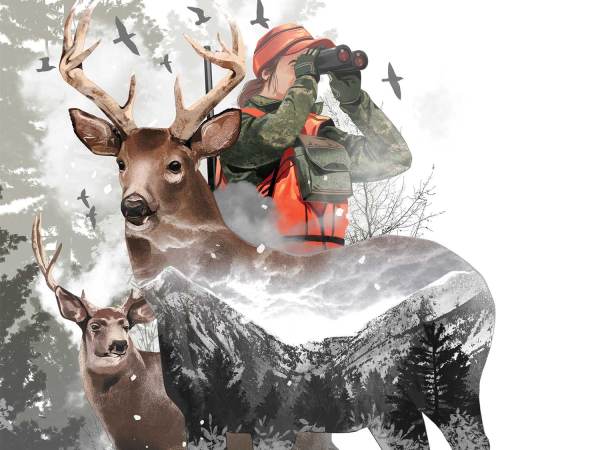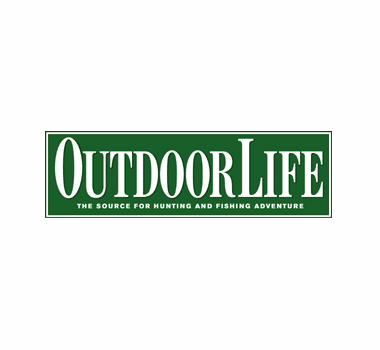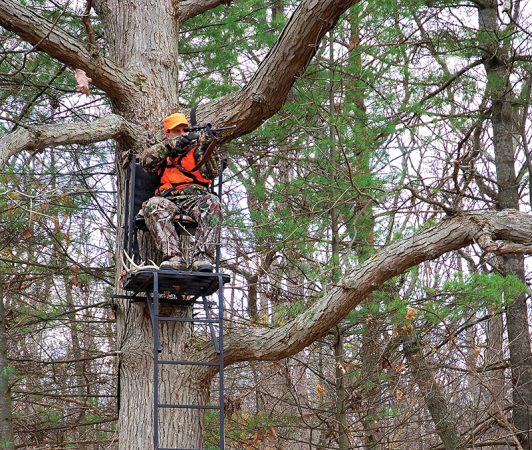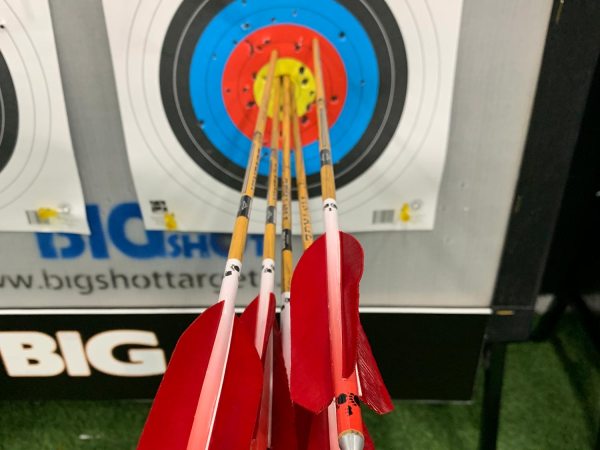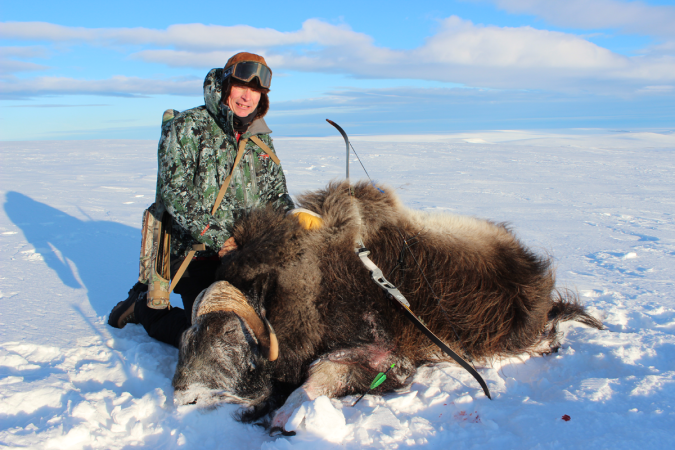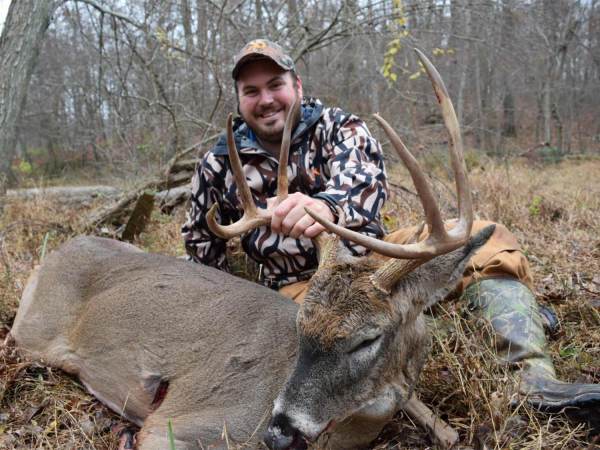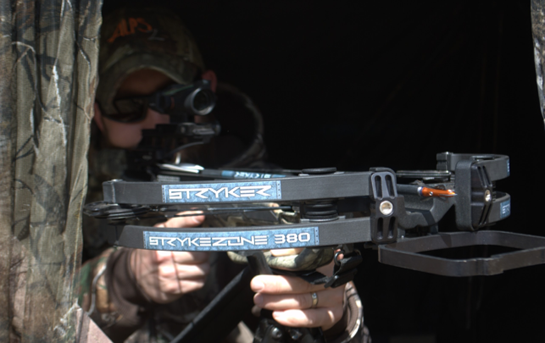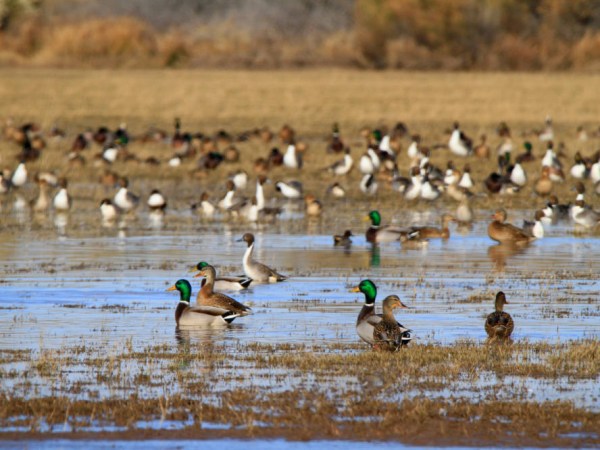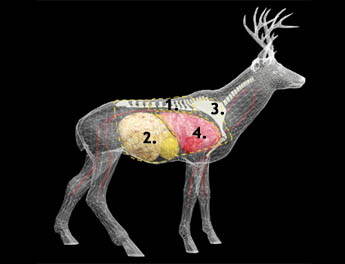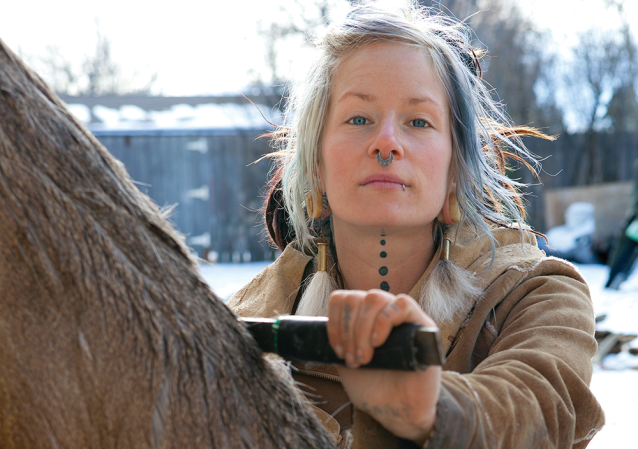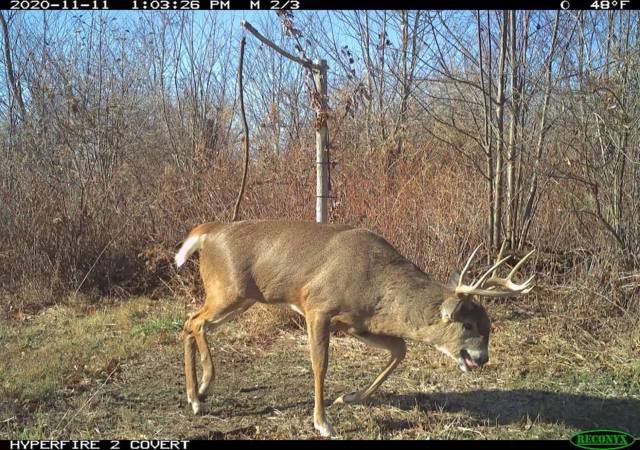There’s a deer jawbone in the National Deer Association’s collection of odd deer artifacts that is bent, misshaped and missing a couple teeth on the left side. Buried in a strange bulge of bone on the right side is a gray object. It is the bullet that wrecked the deer’s jaw.
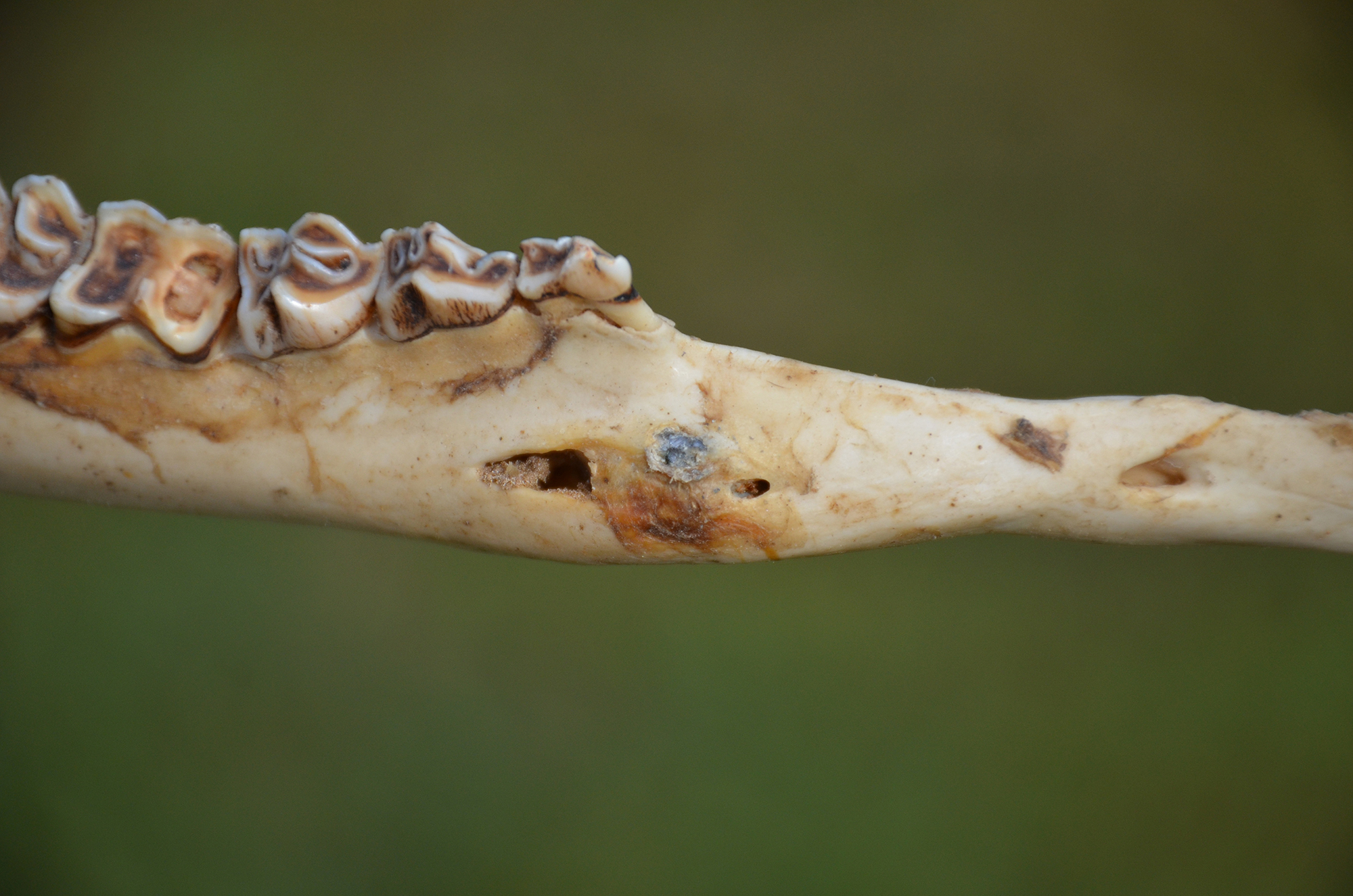
Joe Hamilton, a wildlife biologist from South Carolina and an NDA Board member, collected this jawbone from a hunter-harvested deer somewhere back in his years of professional herd management. The deer did not die from the bullet in its jaw. It survived long enough for the bone to heal around the lodged bullet and around the craters left by the shot-away teeth. It even survived long enough for its now irregular chewing patterns to grind a strange slant on the remaining molars. It survived long enough to eventually be killed, ethically, by a hunter.
There’s No Margin for Error
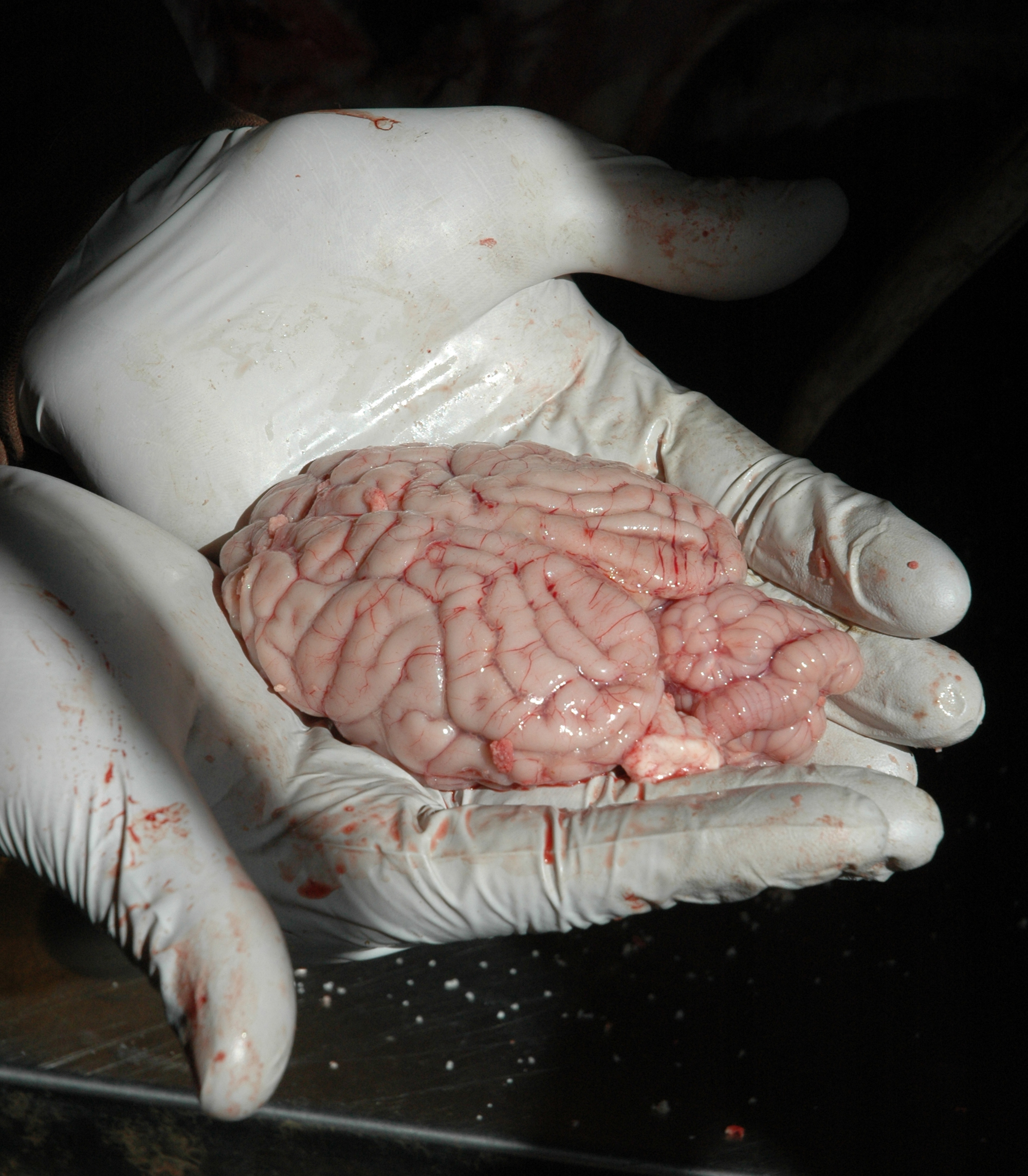
I think of this jawbone whenever I tell people they should never take aim at a deer’s head. There’s simply no margin for error around a deer’s relatively small brain (about 3 inches on the average deer, as much as 4 inches on a large adult buck). If you don’t read any further, get that into your head: No margin for error.
Plus, a deer’s brain is a deceptively small target. Yes, a big whitetail might look like it has a large head. But for reference, compare a deer shoulder mount to a skull mount. With the skull mount, you’ll see that the cranial cavity only makes up a small portion of the skull. It would be easy for hunters to misjudge the location of the brain, within the skull, on a live, moving deer.
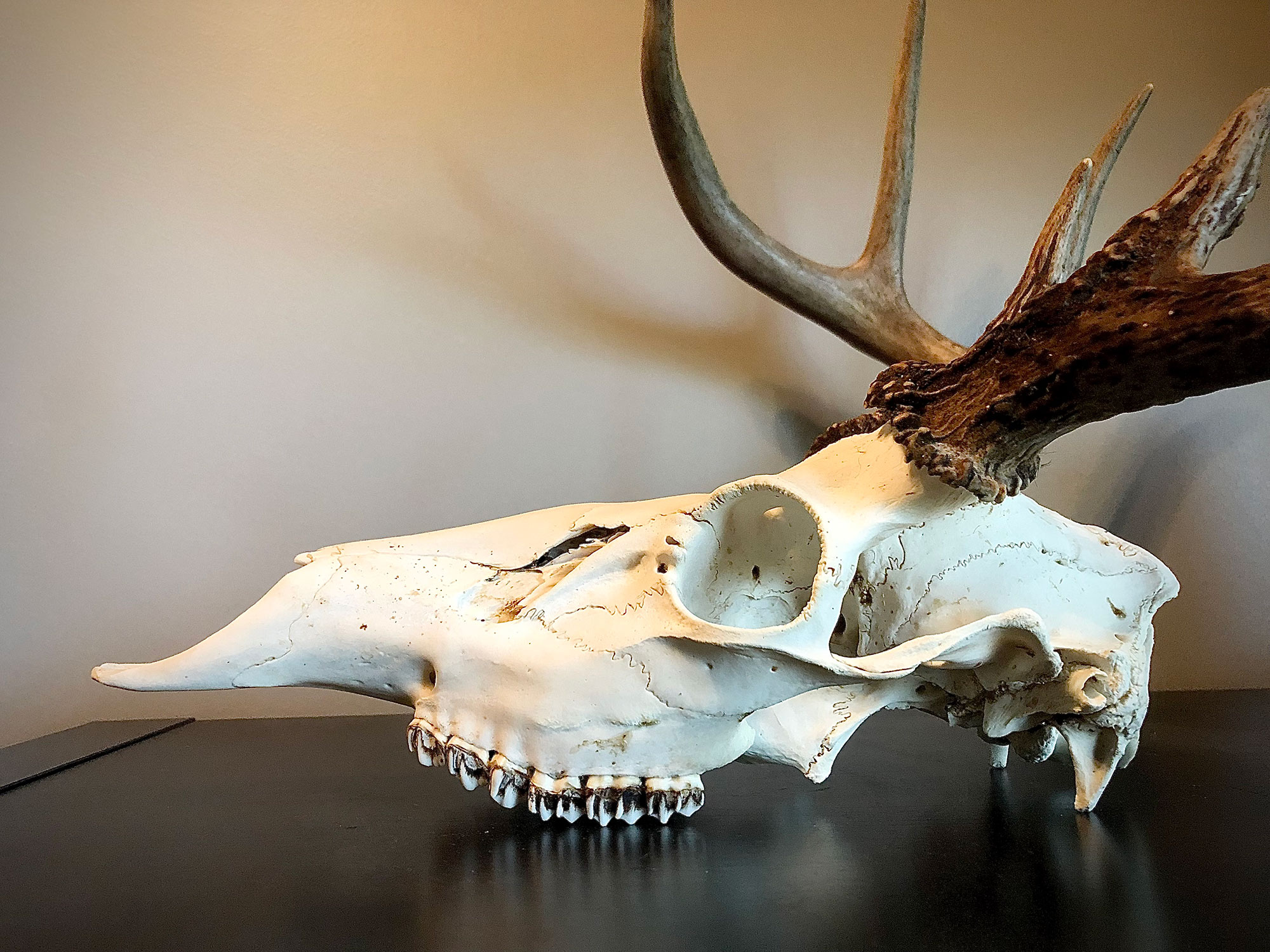
Forget about marksmanship. I’m not maligning your shooting skills when I say this, so don’t take it personally. Even a slight move of the deer’s head as your otherwise precise shot is leaving the barrel can turn a lethal hit into a horrific wound that causes death only after long and brutal suffering or leaves the deer with permanent scars and disability after the worst of the suffering is over. Just think of the parts of a deer that can be hit by a slightly off shot without bringing rapid death: eyes, tongue, throat, jaw, teeth, nose, sinuses.
Deer move, and their heads (and tails) move the most often. They may pause then move again suddenly as you pull the trigger. No matter how great a shot we are, we all need extra margin for error to ensure a quick, humane death and an ethical recovery. A deer’s brain gives you none.
Aim for the Heart and Lungs
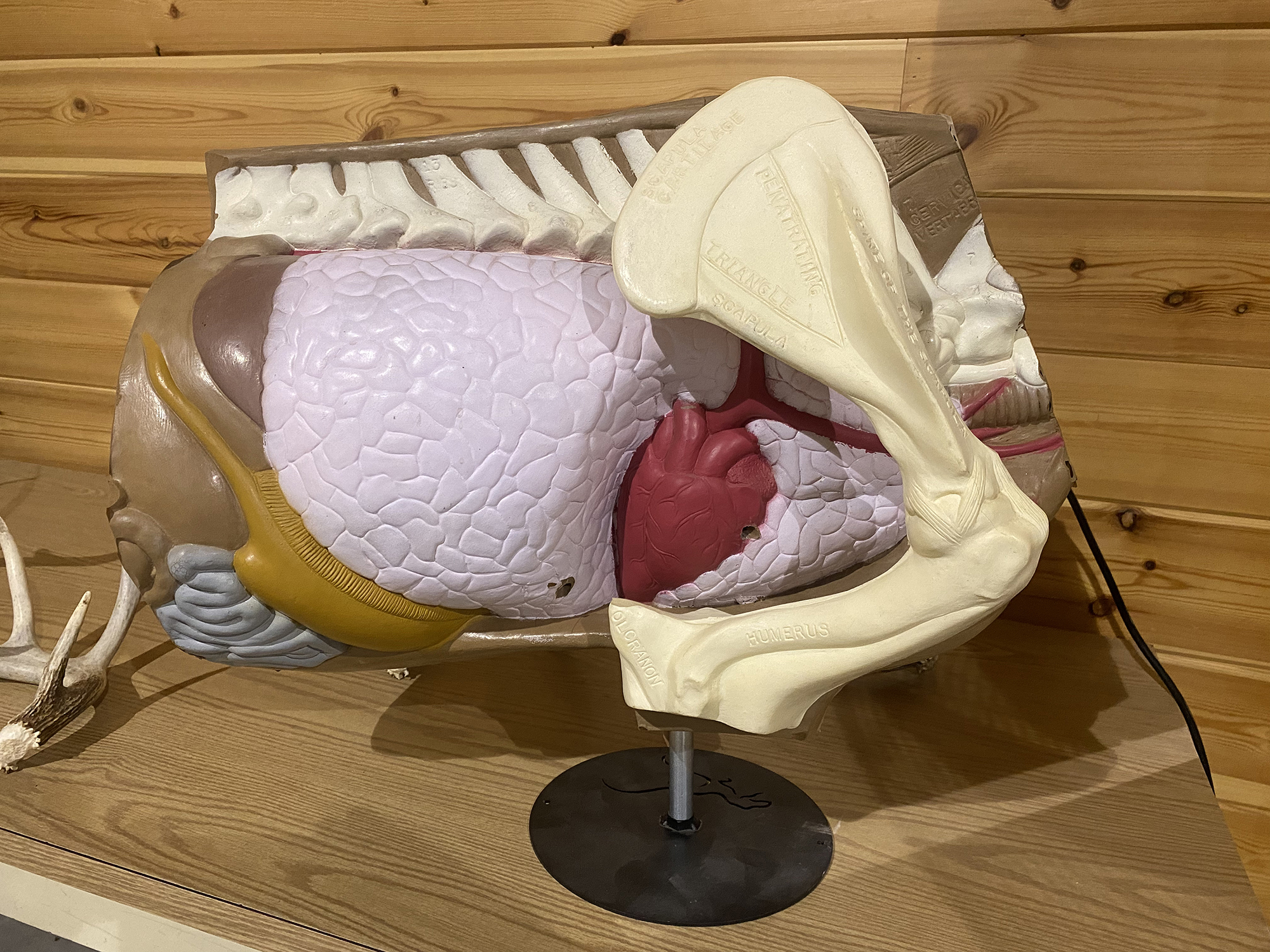
The most rapidly lethal aimpoint that also gives you considerable room for error is the large vital area in the chest holding the heart and lungs, which should be taken from a broadside angle. The heart is only slightly larger than the brain at around 5 to 6 inches on average, but it is adjoined and surrounded almost completely by an even larger target, the lungs. Hitting both lungs while missing the heart still means a dead deer that you are likely to recover very easily. There are also major arteries throughout the chest cavity that, if hit, can cause a rapid drop in blood pressure and volume, leading to quick death even if you miss the heart.
Farther out, lie parts of the anatomy that are not desirable as primary aimpoints but can still result in a fatal hit. There is the shoulder bone and blade, and if you err too far forward you can break these on one or both sides at the same time you hit the chest cavity. Too high, and you hit the spine. And if you hit far enough back to miss the lungs, there’s the liver, which is usually a fatal hit and the deer can be recovered if given a little extra time to expire. We should practice and achieve proficiency to ensure we hit the core of the vital area, but it’s good to know these bordering areas can still result in an ethical kill when things don’t go as planned.

Avoiding meat damage is not a justification for taking head shots on deer. Potentially dealing a serious injury to a deer that you cannot then recover is not worth any amount of meat saved. A heart/lung shot that puts the deer down close by might, if it’s a little far forward, damage one or both front quarters. But you still recover most of the meat, and you give the animal a quick and humane death.
The fact that head shots may be used by some wildlife damage professionals, who control deer in sensitive urban settings where hunters can’t go, is not a justification either. These folks operate in areas where deer are usually acclimated to people (the deer are only semi-wild), they often work at night, from vehicles, with spotlights and suppressors, and they can get very close to their targets. They do this professionally, and nothing about their work is similar to hunting a hunting scenario with wild deer.
In the wild, there’s simply no good reason not to wait for a clear shot at the vitals with a much higher likelihood of a humane harvest. If all you have is a head shot, and you decline it, and the deer escapes without presenting a different angle, then wish it well and be proud you did the right thing. You just might see the deer again on your next sit.
So, show deer the respect they deserve as America’s most important and valuable wildlife species, which we so greatly admire. Wait for the deer to be still in a broadside position, bring your sights up the rear edge of the deer’s front leg, and stop about one-half of the way up the body, which puts your sights right at the top of the heart. Relax, pull the trigger, make a clean, ethical harvest, and go get your venison.

